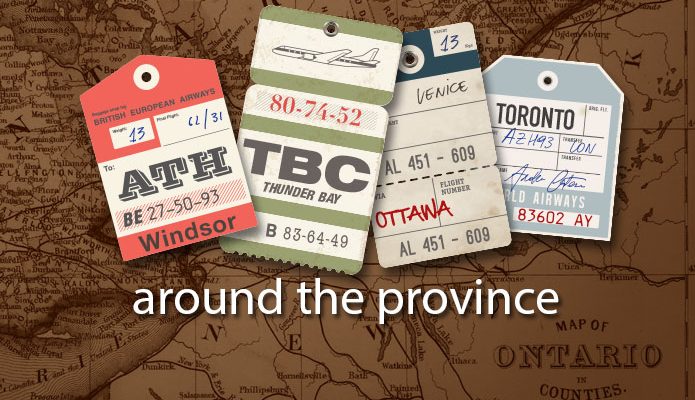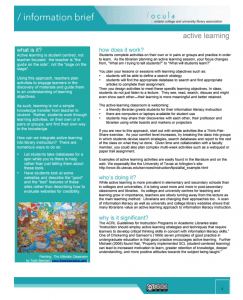
OCULA Information Briefs: A Great Way to Get Started!
By Jack Young
As academic librarians, we are naturally interested in learning new things and exploring new topics. But sometimes it’s hard to get started: too much information and we may feel overwhelmed, not enough and we can become lost. OCULA Information Briefs find that sweet spot by providing two-page backgrounders on established and emerging topics in academic librarianship in Ontario. Briefs cover seven core questions about a topic: What is it? How does it work? Who’s doing it? Why is it significant? What are the challenges? Where is it going? What are the implications for libraries? There’s also a section dedicated to further reading, to help you explore and expand your knowledge.
 We have Information Briefs covering everything from Impact Metrics to Project Management, from Active Learning to Open Journal Systems. Whatever you’re interested in, there’s an Information Brief to help you — and if there isn’t, we’re always looking for contributors from academic libraries to write new Briefs. We’ll provide the template, you provide the content. Information Briefs are a great way to contribute to the library community, practice your writing skills, and get your name out there.
We have Information Briefs covering everything from Impact Metrics to Project Management, from Active Learning to Open Journal Systems. Whatever you’re interested in, there’s an Information Brief to help you — and if there isn’t, we’re always looking for contributors from academic libraries to write new Briefs. We’ll provide the template, you provide the content. Information Briefs are a great way to contribute to the library community, practice your writing skills, and get your name out there.
Our most recent Information Brief comes from Brian Cameron and Naomi Eichenlaub at Ryerson University Library & Archives. They provide a succinct summary of Researcher Identifiers like ORCiD, ResearcherID, and Scopus ID — everything you need to know to get started, all in a few hundred words.
If you’re interested in contributing to a new Brief or updating an old one, please contact us at ocula.ola@gmail.com. We’d love to hear from you!
Jack Young is a Digital Projects Librarian at McMaster’s Health Sciences Library. Jack can be reached at jkyoung[at]mcmaster.ca.


